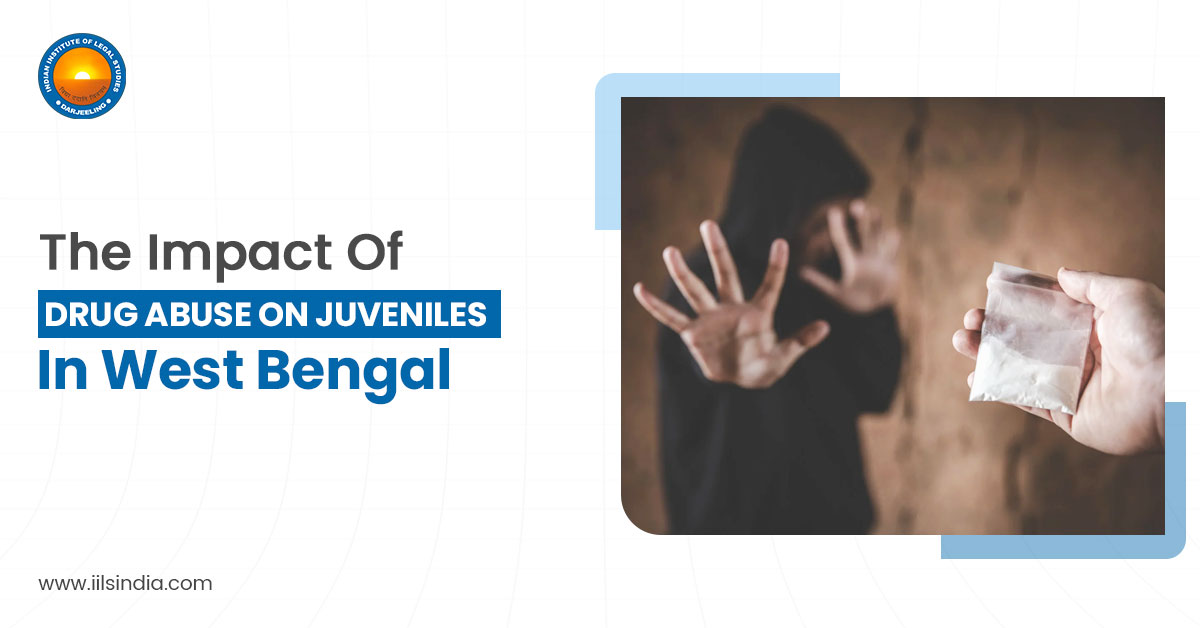Drug abuse and juvenile delinquency are a troubled nexus plaguing societies worldwide, and West Bengal, India, is no exception. Adolescents who use drugs, particularly illegal substances, are more prone to participate in criminal activity owing to poor decision- making, more reckless behaviour, and financial despair among other factors. The repercussions of drug use are clearly obvious in the abuser’s psychological and social behaviour, demonstrating how drug-induced psychosis may lead to impulsive and violent behaviour, further fuelling delinquency. Drug peddlers frequently target vulnerable youngsters and attract them into the illicit drug trade, prolonging the cycle.
In the midst, West Bengal faces unique challenges. As India’s proximity to the Golden Crescent and Siliguri’s role as a drug trafficking hub has exacerbated West Bengal’s drug abuse problem in a harsh way. Giving a rise to various problems like Poverty, lack of educational opportunities, and broken family structures can all contribute to a higher risk of drug abuse and delinquency. Children from disadvantaged backgrounds may find solace or escape in drugs, making them easy targets for dealers. The amount of emphasizes children or adolescent needed by the government to address the lack of recreational facilities and positive outlets for young people’s energy, especially in densely populated urban areas is missing. This lack of alternatives can lead them towards delinquent behaviour.
India has a well-defined legal framework to address drug abuse, including the Narcotics Drugs and Psychotropic Substances Act (NDPS Act) of 1985. However, enforcement remains a challenge due to corruption, inadequate resources, and a complex judicial system. Additionally, the focus on punishment alone might not be sufficient. Rehabilitation programs and alternative sentencing options for juveniles caught with drugs are crucial for breaking the cycle of addiction and delinquency.
Effective solutions require a comprehensive approach. Public awareness campaigns aimed at educating youth about the dangers of drug abuse are essential. Strengthening community outreach programs can provide support to vulnerable youth and promote positive alternatives. Investing in education and creating recreational facilities can provide a healthy outlet for young people’s energy. The state government should also consider collaborating with NGOs and community leaders to develop effective intervention programs. Law studies in West Bengal can play a critical role in addressing this. By pinpointing weaknesses in Ncurrent legislation, law student can guide policymakers towards strengthening drug laws and enforcement strategies. Many researchers who study law can also focus on effective rehabilitation programs and alternative sentencing for juveniles. Additionally, students pursuing Law study in West Bengal may improve legal awareness in vulnerable areas and push for international collaboration to stop trafficking networks that originate in the Golden Crescent. West Bengal can try to break the link between drug trafficking and widespread misuse inside its boundaries by using a multifaceted approach guided by legal study. Law studies undertaken within the state can give useful information about the legal structure and its constraints. By establishing tighter enforcement measures, as well as comprehensive rehabilitation programs and encouraging healthier alternatives, West Bengal may try to break the link between drug misuse and juvenile crime, paving the way for a brighter future for its youth.

